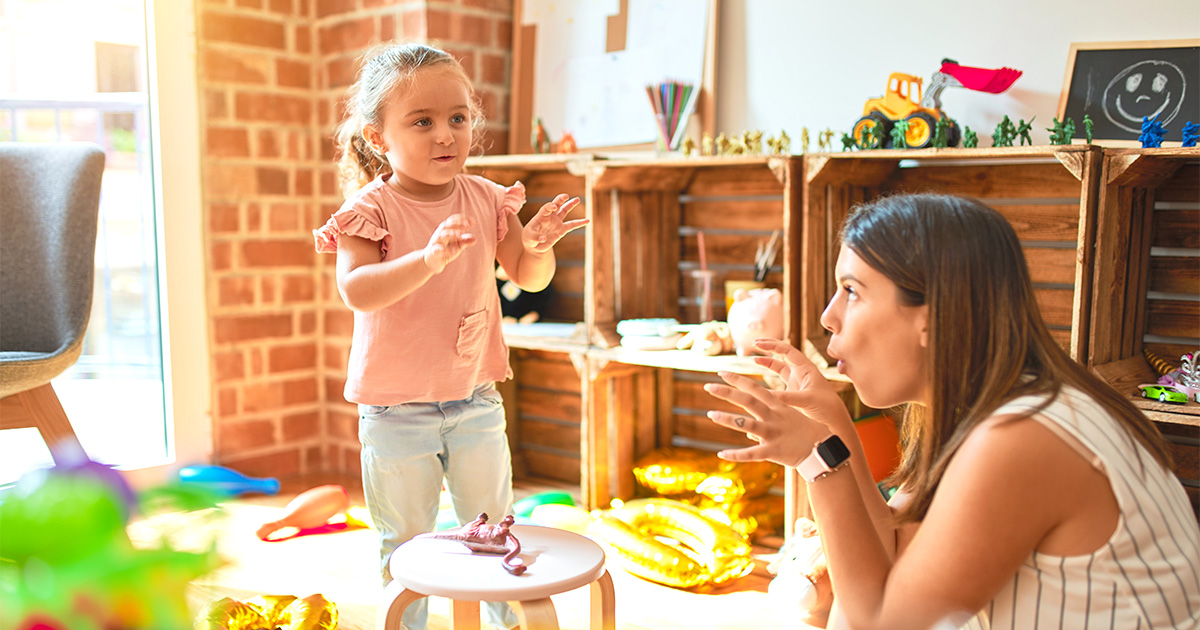- 877.684.1613
- Schedule a Tour

Children naturally engage in play and, although it may not look like it, they are constantly learning as they do. Allowing children to learn through play gives them the opportunity to experience new things authentically and organically. In doing so, they navigate their world using critical thinking and creativity as they solve problems along the way. These are important skills that will set children up for success in school and beyond.
Often, we think children need structured activities to learn academic or kindergarten readiness skills such as phonics, reading, writing, numbers, or colors. However, it’s important to remember that play doesn’t have to be a structured activity. In fact, it’s better if it’s not!
Open-ended play gives children the opportunity to see the world through their own lens. There are also many ways to incorporate play-based experiences into everyday tasks or daily routines.
Try these ideas:
- While cooking, encourage your child to engage in pretend play. Transform your kitchen into a make-believe restaurant. What role will your child choose to be? The chef? A server? Maybe they choose to design a menu or write a recipe card for the dinner you’re making.
- At the grocery store, play “I spy” with your child. Have them guess what item you’re thinking of by describing different characteristics. This is a great way to support children as they learn colors, shapes, adjectives, and much more.
- While doing laundry, have children sound out the first letter of each item or clap out syllables as you transfer clothing into the dryer. This is a great way to incorporate phonics into a common chore.
- In the car, have your child look for the numbers 1 through 10 on signs and billboards. See if they can identify them all in order by the time you get to your destination.
- During transitions, ask children to pick an animal they would like to be. Encourage them to move like that animal as they get from point A to point B. This is a fun way to support your child’s gross motor development and a great way to build creativity and imagination!
Not only does play support academic learning, but it also creates healthy social-emotional skills. These skills are just as important as academics. As children participate in play, they learn to self-regulate, share, and work through conflicts.
Regardless of the type of learning, something to always remember is that children learn best when they’re engaged and interested in the experience. Turning experiences into fun, playful activities will support your child’s development in all domains.
